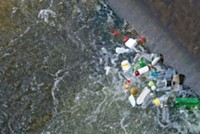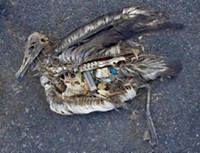Advertisement
Grab your lab coat. Let's get started
Welcome!
Welcome!
Create an account below to get 6 C&EN articles per month, receive newsletters and more - all free.
It seems this is your first time logging in online. Please enter the following information to continue.
As an ACS member you automatically get access to this site. All we need is few more details to create your reading experience.
Not you? Sign in with a different account.
Not you? Sign in with a different account.
ERROR 1
ERROR 1
ERROR 2
ERROR 2
ERROR 2
ERROR 2
ERROR 2
Password and Confirm password must match.
If you have an ACS member number, please enter it here so we can link this account to your membership. (optional)
ERROR 2
ACS values your privacy. By submitting your information, you are gaining access to C&EN and subscribing to our weekly newsletter. We use the information you provide to make your reading experience better, and we will never sell your data to third party members.
Letters to the editor
Problem with plastics
The near juxtaposition of your editorial “Plastics Crisis” (C&EN, May 27, page 2) and the article “EU Adopts Plastics Ban” (C&EN, May 27, page 12) illustrates the frustration of the issue of discarded plastics. I have a longtime interest in the subject; my first paper on recycling waste plastics was published in 1960.
The developed world, particularly the European Union and the US, engages in much breast beating over plastics in the environment, with few solutions. Witness the recent Chemical Sciences Roundtable devoted to the subject and earlier your feature issue on same. The EU has passed what seems trivial solutions (no plastic sticks for balloons), much like US localities that ban (or want to ban) plastic straws. These acts, while maybe good for symbolism and some consciences, are grossly misdirected. The problem has been defined as plastics littering into the seas from developing countries. I find no proposals directed to this problem.
Littering is a slovenly behavior problem and not amenable to technological solutions. Litter baskets and associated infrastructure must be provided (the basket contents must be collected at the least). The community must be willing and able to so invest.
Years ago, in conversation with the then science adviser to the Senegalese parliament who was also chief of the Senegalese corps of engineers, I learned its problem with littered blue plastic bags, small ones discarded by consumers after shopping. At the same time, Senegal faced a shortage (and balance-of-payments problem) of plastic pipe for irrigation and potable water supply. Recycling the plastic litter was an approach, but unaffordable (for it), and too few bags were discarded to make enough pipe. That dinner conversation sums up the problem of such recycling.
I recall when growing up our littered streets and alleys and the success of the Keep America Beautiful (KAB) program. The “Crying Indian” advertisement and KAB did wonders. Education is a good export and could undoubtedly reduce litter more than banning plastic straws from Western countries. And when such steps fail, the chemists and their industry will be blamed for others’ behavior.
Harvey Alter
Frederick, Maryland





Join the conversation
Contact the reporter
Submit a Letter to the Editor for publication
Engage with us on Twitter